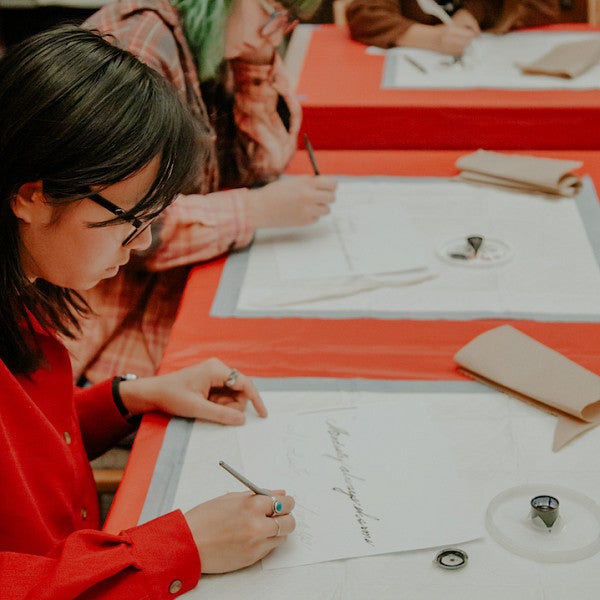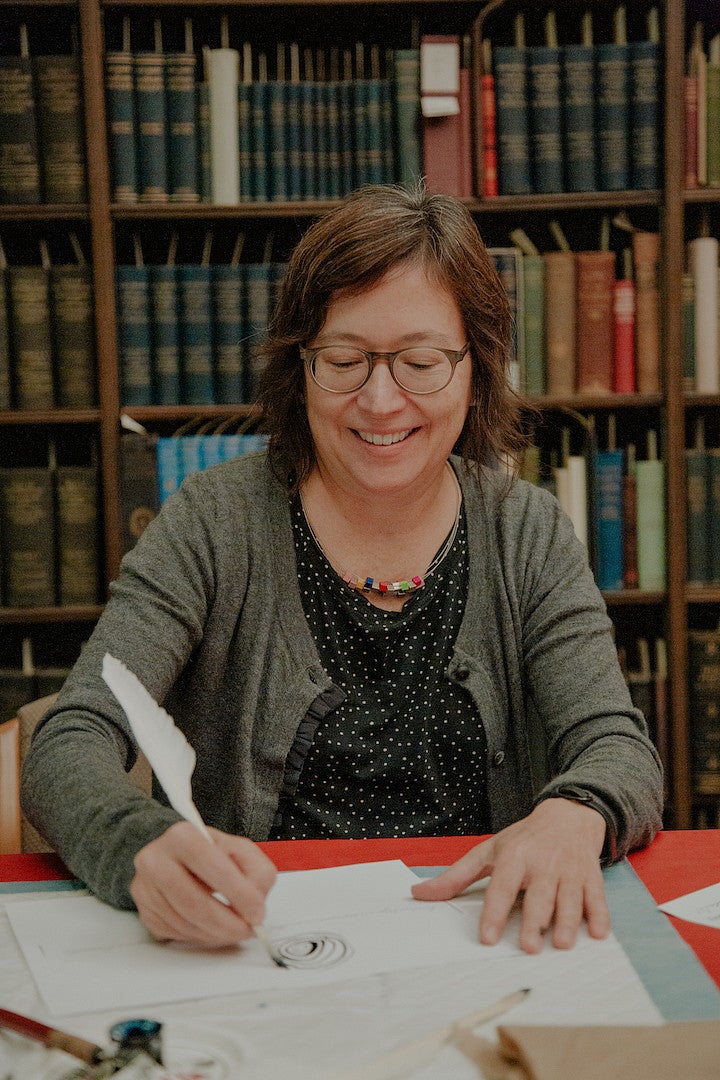
Lauren Jin practices calligraphy in 2020's class, Book Love, which led her to becoming a research assistant for Professor Mai-Lin Cheng.
Story by Lauren Jin, CHC Communications
Photos by Sarah Nothrop, CHC Communications
There are two kinds of RA you’ll typically encounter on a college campus. The first is sure to be familiar to anyone who has stayed in a dorm room. But I’m not here to talk about the person who writes you up for being too loud on a Tuesday. No, this article is about being a research assistant, which is the other, less infamous, RA.
Last winter, before we were plunged into a pandemic, Professor Mai-Lin Cheng asked me if I was interested in helping her research on pedagogy and commonplaces. In a previous essay I touched a bit on the class she taught, Book Love, which was a course centered around the same topics. I really enjoyed what I learned during Book Love and that convinced me to sign on as Professor Cheng’s research assistant. There was also the issue of my thesis: being a research assistant would give me the reps I needed before I jumped into my own project. Sure, my schedule was already packed between jobs, class, and clubs. But I was confident I could make enough time for everything. One short 200-word statement later, and I was all set to start RA work in the spring. I was picturing hours in the library, sifting through dusty tomes, and coffee meetings in the sun.

Professor Mai-Lin Cheng, Lauren Jin's mentor in the Mentored Research Program.
That is, of course, not what happened. I don’t think I need to go into the events that occurred last spring and we’ve had enough quarantine thinkpieces to last…well, another quarantine. In any case, remote research looked a lot like any other remote work that we were thrown into. It was a lot of Zoom meetings, Google Docs, and PDFs. It could be frustrating at times, because I felt that the experience could have, during a normal year, been something more. Especially because so much of what I was researching had to do with physical objects: commonplace books, libraries, archives. At the same time, the research was comforting, a way to understand the once-in-a-millennium circumstances I found myself in. When all life seemed to be happening online, the digital humanities papers I read helped me unpack idiosyncrasies of the medium. They offered the words I needed to hear. We’re coming on the other side of the pandemic, but we would do well to keep in mind that “memory is an act of commemoration—a process of recollecting or remembering” as Wendy Hui Kyong Chun states in “The Enduring Ephemeral, or the Future Is a Memory.” Lessons learned during the tragedy and reckonings of the past year can only said to be committed to memory if we are committed to doing the work.
The CHC has expanded the opportunity for experiences like mine through the Mentored Research Program. I strongly encourage any CHC student to apply. The skills you learn through being a research assistant can only help your work on the honors thesis — and the research you do could even form its foundation. If you’ve ever been excited about a honors course or inspired by a CHC professor’s passion for a subject, the Mentored Research Program is your chance to pursue that interest for longer than just a ten-week term (and be paid to do it).
